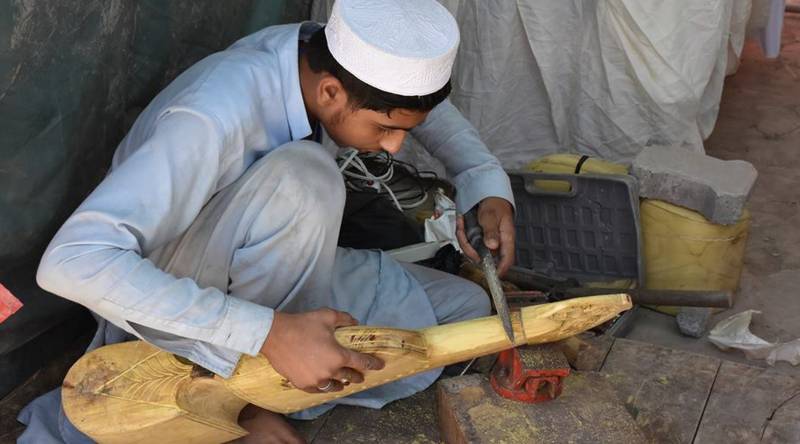Since I can recall, music has been an integral part of weddings in Khyber-Pakhtunkhwa, like other parts of the country. A week before the wedding day, every night friends and relatives of the groom used to take out processions at the drumbeat that culminated at his home. On the wedding night, the groom’s family used to arrange a mega music event, in which people of all age groups of the nearby towns were invited by default and they participated with passion.
However, after the emergence of Taliban in Swat, nobody dared to conduct or participate in such events. Though Mardan faced the least of terror incidents during the past decade, however, the elders in this rather educated, enlightened and moderate district were already against the music. The youngsters were scolded for listening to music and were regarded as bad guys. The clerics were equally against it and always persuaded people to arrange religious 'mahafil' on wedding nights instead of music programmes. In these circumstances, only the thought that the Taliban hated the music was sufficient to expel the art from the lives of the people.
The other blow to the music in the area was the sorrow and grief that engulfed the area with each incident of terror in any part of the country, due to which the people were unable to involve themselves in a happy activity.
In an instance of the Taliban mindset prevailing locally against the music, a cleric of an Islamic political party led an action against a music party arranged along a roadside in Hathian village of Mardan district. The seminary students came over the party with sticks, kicks and badly hurt several people in October 1999. One man shouted, an eye-witness said, that the army has taken the action, as that time the thoughts of the military coup were still fresh, and as a result, the people even jumped into an irrigation canal to save themselves from the assault.
Ironically, the Taliban had allowed people in North Waziristan Agency to secretly run music shops. I had filed a story on this in daily The Nation. My sources said that the Taliban needed Indian songs to convert the same into Naats, therefore, they had to allow music shops to remain open.
However, in Mardan the opposition to music and other such activities was such severe that during the Taliban rule in Swat, local clerics visited the newly-established offices of internet and cable operators and asked them to shut their businesses, who followed the instructions promptly.
Back then, this scribe had to send a news story on Internally Displaced People (IDPs) pouring then into Mardan to the Islamabad news room, but could not do so because of the unavailability of an internet cafes in the whole of the district.
In Takht Bhai tehsil of Mardan, this scribe once witnessed a clever banner, written in Urdu, which meant that an internet connection strictly in line with the teachings of Islam was available. The vendor was indeed clever, but I wondered, whether he would be enough clever to be able to filter the 'un-Islamic' content, as even the Pakistan Telecommunication Authority (PTA) has testified before the Islamabad High Court that they are unable to totally filter the content on internet.
Actually, an invitation extended to me on Saturday triggered this write up. One of our friends is going to wed on Sunday night and he has dared to invite all of his friends to a music night in which a prominent singer will perform. Such programmes were never seen during the last decade, therefore, I am praying that the event goes peaceful and serves as a beacon of joys for the people who have been going through a big trauma for so many years.






